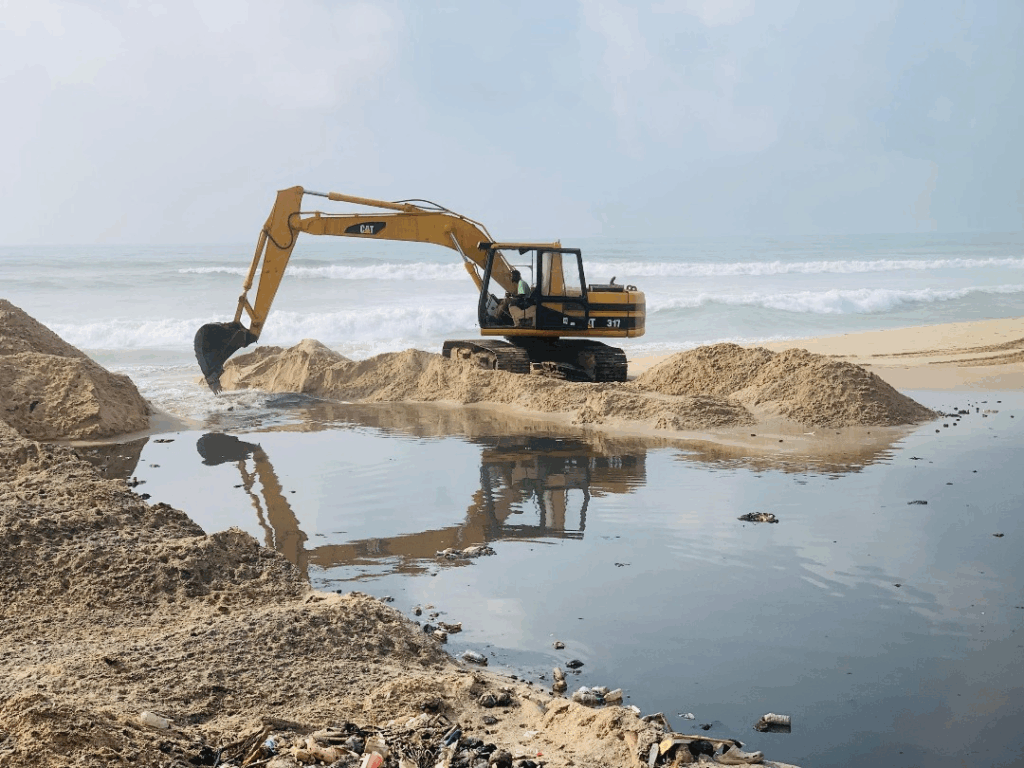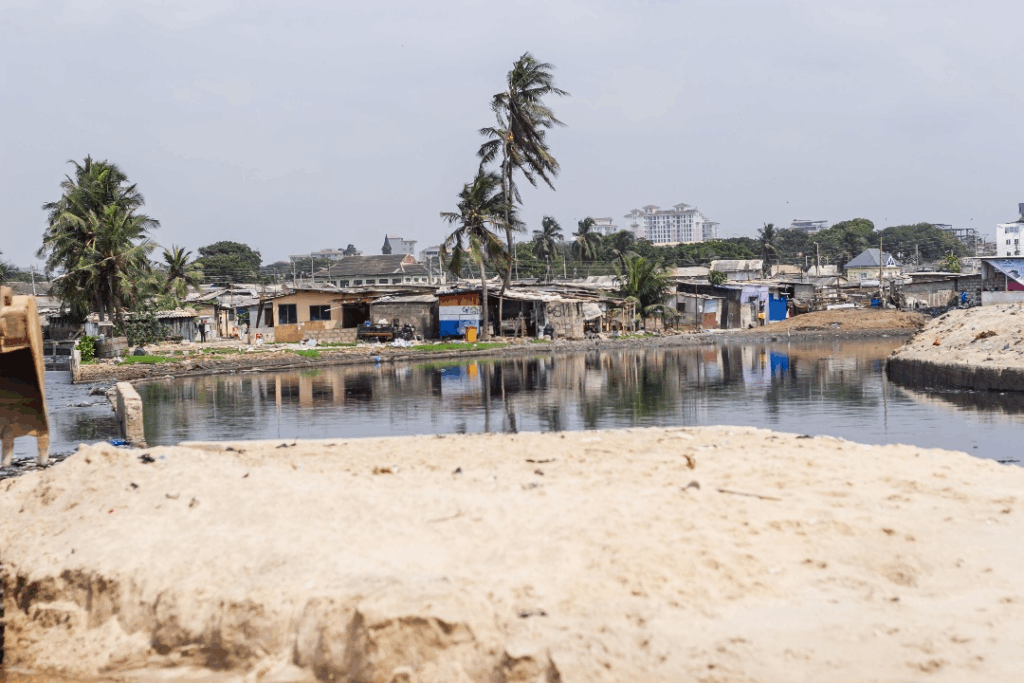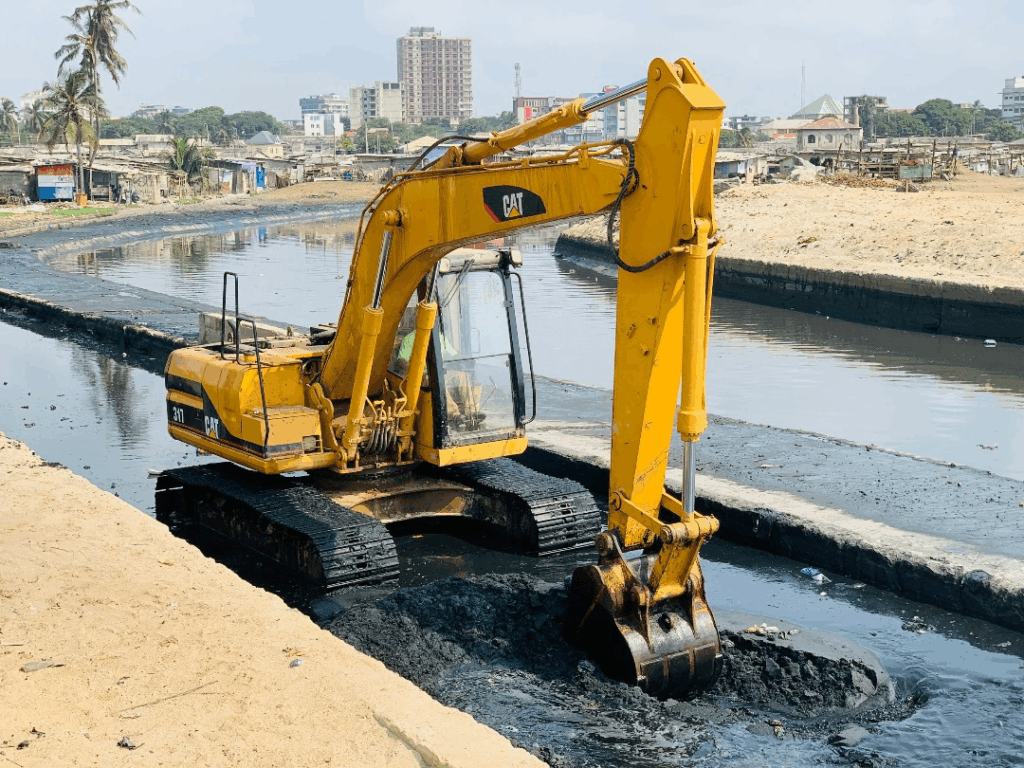With the rainy season already underway and the memory of the June 3rd, 2015, flood and fire disaster still vivid in the minds of Ghanaians, community advocate and tech professional Nii Ashitei Ashietey has led a dredging operation along key sections of the Klottey River in the Klottey Korle constituency—an area repeatedly affected by seasonal flooding.
Mobilising limited resources, Nii Ashitei secured a dredger that operated for several days to desilt and clear critical sections of the river.
The effort removed tons of silt, debris, and waste that had long choked the waterway and contributed to devastating floods.
This community-led initiative comes against the backdrop of one of Ghana’s most painful national memories—the June 3rd, 2015, flood and fire disaster, which claimed over 150 lives and destroyed properties across Accra.

The event remains one of the worst disasters in Ghana’s history, a stark reminder of the consequences of inadequate drainage infrastructure and poor urban planning.
Nearly a decade later, flooding continues to pose a serious threat to Ghana’s development, economy, and national security.
The Klottey Korle constituency was among the hardest-hit areas during the 2015 disaster, and residents still experience recurring floods every rainy season.
“It has been 10 years since the June 3rd tragedy, yet we are still grappling with the same problem,” Nii Ashitei stated. “The Klottey River continues to pose a significant risk to lives and livelihoods. We cannot allow this cycle to persist.”
Nii Ashitei extended his heartfelt commiserations to the families who lost loved ones in the June 3rd tragedy, recognising the deep pain and loss that still linger in the hearts of many Ghanaians.
While acknowledging the government’s recent flood prevention efforts, he emphasised the need for a transformative and sustained approach.

He called for major investment in reengineering Accra’s drainage systems and key waterways, especially at discharge points where rivers like the Klottey meet the sea, to ensure long-term flood resilience.
“The loss of life and property from these floods is a national tragedy, and we cannot afford to wait for the next disaster before acting decisively,” he said. “This is not just an environmental issue; it’s a national security concern, an economic challenge, and a human crisis.”
Nii Ashitei is urging the Ministry of Works and Housing, the Klottey Korle Municipal Assembly, and all relevant agencies to prioritise regular dredging, maintenance of major waterways, and the implementation of long-term flood control infrastructure, supported by robust public education efforts.
Residents have praised the initiative, describing it as a source of hope and relief in a constituency that has long felt neglected.
Still, they insist that lasting solutions will require more than community action; they demand consistent government leadership and sustained investment.
The Klottey River initiative supports Ghana’s national climate resilience strategy and aligns with President John Mahama’s vision for building sustainable, climate-smart urban communities.

However, Nii Ashitei cautions that without sustained government commitment, the cycle of annual flooding will continue to erode progress.
Beyond his flood advocacy, Nii Ashitei is establishing a free ICT and Data Analytics Lab in Osu to equip local youth with digital skills. He notes that environmental resilience is key to sustainable development.
“We are building the future through education and technology, but our people must first have safe and secure environments to thrive,” he stated. “Addressing the Klottey River flooding is not just an environmental issue—it’s an economic and social imperative.”
DISCLAIMER: The Views, Comments, Opinions, Contributions and Statements made by Readers and Contributors on this platform do not necessarily represent the views or policy of Multimedia Group Limited.
DISCLAIMER: The Views, Comments, Opinions, Contributions and Statements made by Readers and Contributors on this platform do not necessarily represent the views or policy of Multimedia Group Limited.
